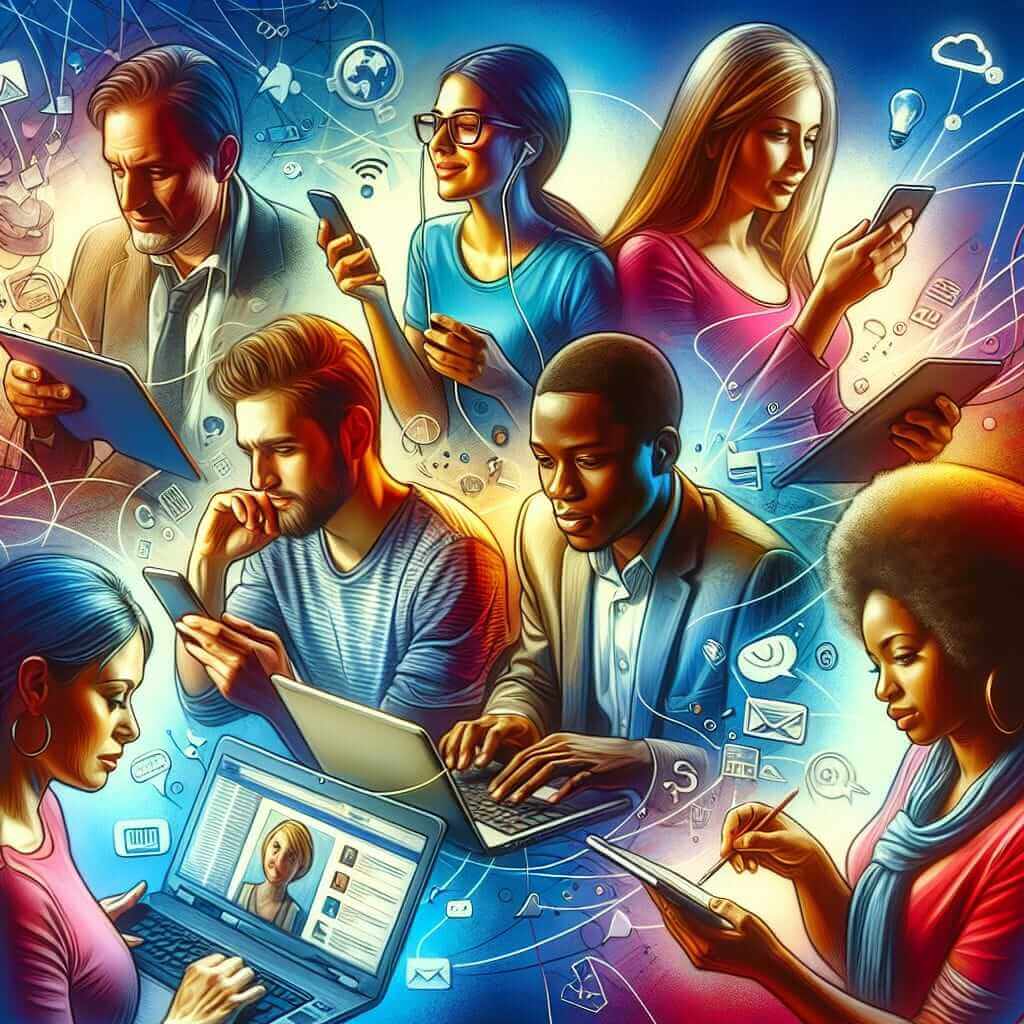The IELTS Reading exam assesses a range of reading skills, including the ability to identify main ideas, author opinions, specific information, and implicit meanings. One interesting and highly relevant topic for understanding social changes today is the increasing reliance on virtual communication.
This topic frequently appears in various contexts, including academic articles, social commentaries, and more. Given its relevance and constant presence in online and offline discussions, an understanding of the social implications of virtual communication can be highly beneficial for IELTS candidates.
Reading Passage: Virtual Communication and Its Social Implications
Below is a sample reading passage designed to reflect the style and content of a genuine IELTS reading section. This text falls into the Medium Text category.
The Social Implications of Increasing Reliance on Virtual Communication
In recent years, the advent of technology has substantially transformed the way we interact. Virtual communication, encompassing social media, video calls, instant messaging, and email, has become ubiquitous. This shift has promising advantages but also poses significant social implications.
Firstly, one of the major benefits of virtual communication is its ability to connect people across vast distances, breaking down geographical barriers, and enabling real-time interaction regardless of location. This capability has been particularly beneficial for maintaining relationships during the global COVID-19 pandemic, where physical contact was minimized.

However, the increased reliance on virtual communication raises concerns about social skills and emotional intelligence. Critics argue that face-to-face interaction is pivotal for developing these skills, which can be hindered by excessive screen time. The absence of non-verbal cues, such as body language and facial expressions, in digital communication can lead to misunderstandings and a lack of empathy.
Moreover, the pervasive use of virtual communication platforms has had implications on privacy. Personal information shared online can be susceptible to data breaches and misuse. Many users are unaware of the extent to which their data is collected and exploited, raising ethical concerns about privacy and consent.
The impact on mental health also cannot be overlooked. Studies have shown that prolonged exposure to social media can lead to feelings of loneliness, anxiety, and depression. The comparison culture fostered by platforms like Instagram and Facebook often leads to unrealistic expectations and a deteriorated self-image.
Conversely, virtual communication has democratized information dissemination, enabling social activism and awareness at an unprecedented scale. Movements like #MeToo and Black Lives Matter have gained global traction mainly through social media channels, showcasing the potential of virtual platforms to drive social change.
In conclusion, while virtual communication has revolutionized interpersonal interaction and information distribution, it is imperative to address its accompanying social challenges. Striking a balance between digital and face-to-face interactions may be the key to fostering a healthy, interconnected society.
Questions
Multiple Choice
-
What is one major benefit of virtual communication mentioned in the passage?
a. Enhanced privacy
b. Real-time interaction regardless of location
c. Improvement in social skills
d. Reduced screen time -
According to the passage, what is a notable downside of virtual communication?
a. Increased geographical barriers
b. Lack of real-time interaction
c. Development of emotional intelligence
d. Privacy concerns and misuse of data
True/False/Not Given
- Prolonged exposure to social media solely has positive effects on mental health.
- The #MeToo movement was significantly supported through virtual communication platforms.
- The passage suggests abolishing virtual communication to foster better social skills.
Matching Information
Match the following statements with the paragraph where they appear:
A. Critics argue that face-to-face communication is crucial for developing social skills.
B. Virtual communication breaks down geographical barriers.
C. Virtual platforms have democratized information dissemination.
Answer Keys
Multiple Choice
- b. Real-time interaction regardless of location
- d. Privacy concerns and misuse of data
True/False/Not Given
- False
- True
- Not Given
Matching Information
A. Paragraph 2
B. Paragraph 1
C. Paragraph 5
Common Mistakes
- Identifying incorrect main ideas: Ensure to differentiate between the main idea and supportive details.
- Confusing True/False/Not Given questions: Always base your answers strictly on the passage, not personal knowledge.
- Misinterpreting Matching Information tasks: Focus on the central idea of each paragraph rather than specific wording.
Vocabulary
- Ubiquitous (adj): /juːˈbɪkwɪtəs/ – Present, appearing, or found everywhere.
- Pivotal (adj): /ˈpɪvətl/ – Of crucial importance in relation to the development or success of something.
- Empathy (noun): /ˈempəθi/ – The ability to understand and share the feelings of another.
Grammar
- Subjunctive mood: Utilized to express hypothetical scenarios or suggestions.
- Example: It’s essential that she be present at the meeting.
Tips for High Scores in IELTS Reading
- Practice various question types: Familiarize yourself with all possible formats such as Multiple Choice, True/False/Not Given, and Matching Information.
- Time management: Allocate a fixed amount of time per question and stick to it.
- Skim and scan: While skimming gives you an overall view, scanning helps in locating specific information.
- Expand your vocabulary: A wider vocabulary range aids in understanding diverse texts and answering questions accurately.
By honing these skills and practicing diligently, you can improve your Reading score significantly in the IELTS exam.